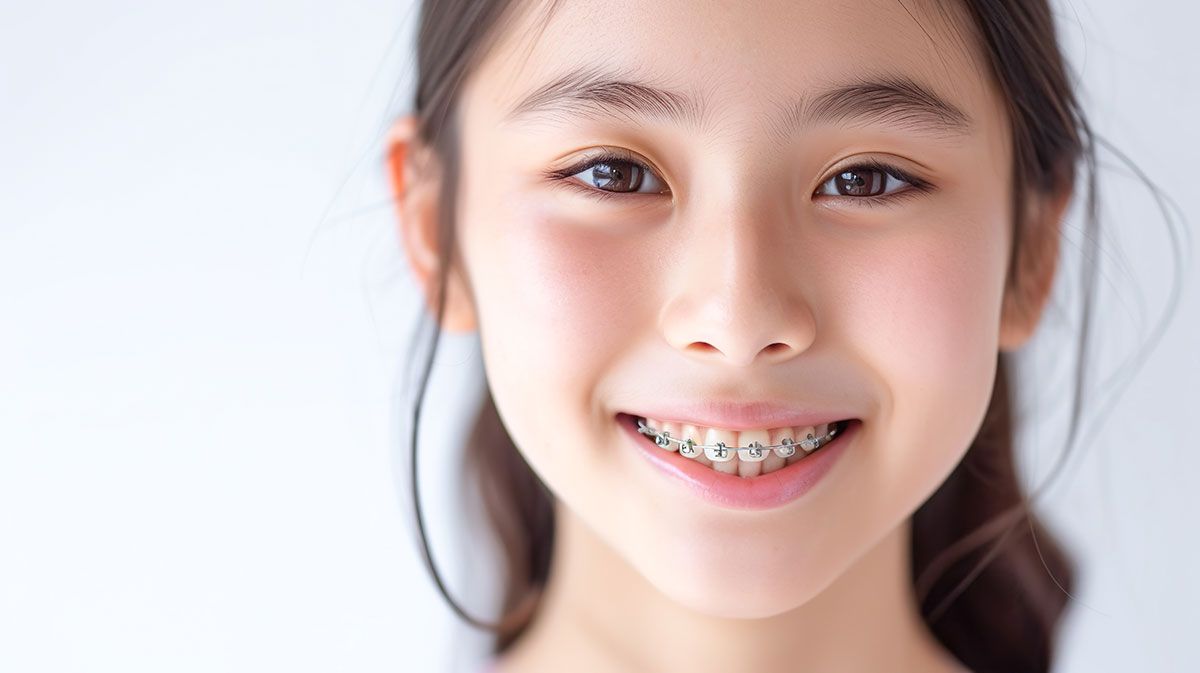Are you putting off your
child’s visit to the orthodontist
till all their baby teeth fall out? Then you have got it all wrong! Your child may miss out their orthodontics “Golden Window of Opportunity”.
Some interesting facts about our teeth:
- Humans have two (2) sets of teeth in their lifetime: Deciduous teeth (commonly known as milk teeth or baby teeth) and its adult counterpart, Permanent (Adult) teeth.
- The first adult tooth erupts at about 6-7 years of age, starting with the first molars and incisors.
- A Transition period of about 6 years exists between 6-12 years old wherein all the deciduous teeth fall off to make space for the erupting adult teeth.
Don’t miss the “Golden window of Opportunity”
It is this six (6) year teeth transition period that I refer to as the “Golden window of Opportunity” as it is the most crucial period for an orthodontist. As the teeth are changing, the jaw bones are also constantly growing and accommodating.
At this stage, an experienced or good orthodontist can predict problems even before they have appeared. If
orthodontic treatment is in fact needed then the possible results achieved at this age will be much better, faster with more desirable outcomes as compared to treatment done at a later age when growth is completed.
Get an Early Start!
If the child is pain free with no problem eating and without any obvious irregularities in their teeth or facial structure, most parents tend to hesitate to seek a good orthodontist’s opinion or advice. They often think of it as a non-urgent situation which can be handled as and when problems appear. “We’ll wait for all the baby teeth to fall out first” or “Better to wait till all adult teeth come in first”. Most often, parent and general dentists wait until all the baby teeth have fallen out before seeking for an orthodontic consultation.
However this could be the biggest mistake that could be made. Orthodontists are dental specialists trained to look out for potential future problems that don’t even exist yet. With their comprehensive training beyond dental school, they may be able to cut down greatly on treatment time, cost and severity if the problems are caught early enough.
According to the
American Dental Association (ADA), any abnormalities in teeth or the bite will usually become noticeable between the ages of 6 to 12. This is why the
American Association of Orthodontists (AAO)
has
set a gold standard recommendation: Your child’s
first orthodontic visit should be no later than age 7.
What are the benefits of early treatment or intervention?
As a parent, we are constantly worried about our child’s well-being and we do everything in our power for them to have a comfortable life and normal growth and development. Healthy teeth and a pleasant smile are one of the few basics that every child must be able to enjoy.
An early orthodontic check-up will help not only your child, but also an orthodontic specialist anticipate and detect any existing problems, advise necessary treatment and determine the best time to treat the patient.
These benefits include, though are not limited to guiding the growth of the jaws, preserving the available space, prevent fracture of front teeth sticking out too far, correct harmful habits and speech problems, shorten treatment time and improve overall appearance and self-esteem.
So schedule your
orthodontic consultation
today!
关于我们的诊所
At Dr. Catherine Lee Orthodontics, we have a dedicated team of doctors and staff whose skills and experiences help our patients enjoy the process of creating healthier, beautiful smiles. We have a strong focus on growing children, and especially welcome those who need orthodontics and dentistry for kids. For a consultation, contact us at enquiries@DrCatherineLeeOrthodontics.com.






